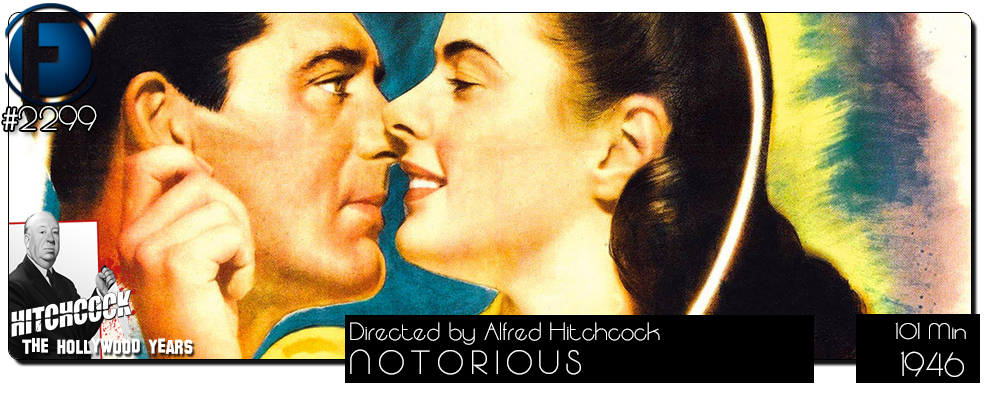Movie Review – Notorious (1946)
Principal Cast : Cary Grant, Ingrid Bergman, Claude Rains, Leopoldine Konstantine, Louis Calhern, Reinhold Schunzel, Moroni Olsen, Ivan Triesault, Alexis Miotis, Wally Brown, Sir Charles Mendl, Ricardo Costa.
Synopsis: The daughter of a convicted German spy is asked by American agents to gather information on a ring of German scientists in South America. How far will she have to go to ingratiate herself with them?
********
Sexy and full of danger, Hitchcock’s noir masterpiece remains as strong and potent today as the day it came out in 1946. Led by a white-hot pairing of Cary Grant and sublime Ingrid Bergman, Notorious is a classic postwar thriller that delivers some of the acclaimed director’s strongest dramatic work to this point. It’s also terrifically energising from a technical standpoint, showcasing Hitchcock’s command of the film camera to deliver showstopping moments on screen that directors have imitated for decades since. For me, though, the film is strongest when the screen contains the incendiary duo of Grant and Bergman, who ignite passion with barely a glance and when they kiss….. well, goosebumps.
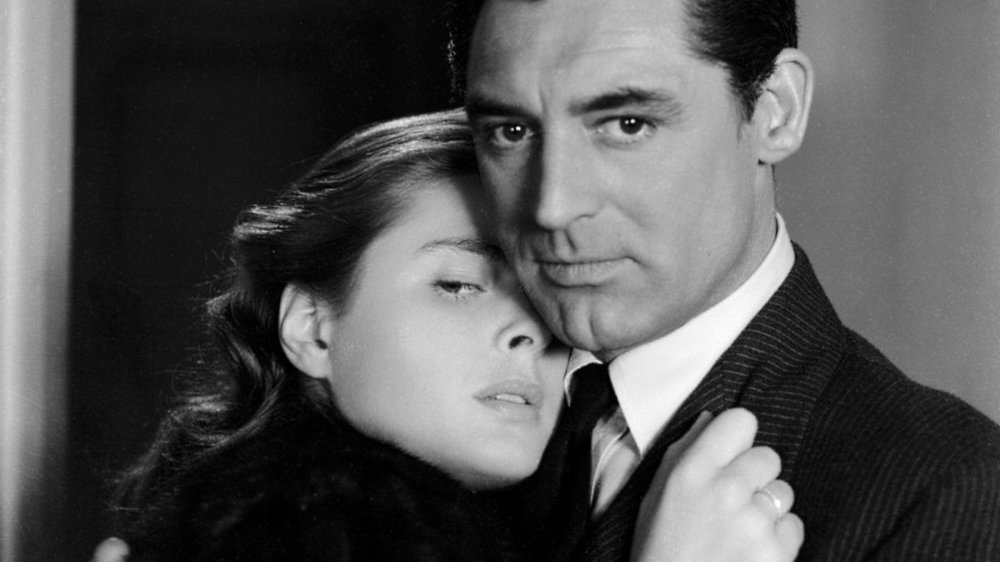
Grant plays US Government agent TR Devlin, who, along with his boss Captain Prescott (Louis Calhern) is endeavouring to infiltrate an organization of Nazi’s who have escaped to Brazil following World War II. In order to do so, they recruit the promiscuous party girl Alicia Huberman (Bergman), whose father, a Nazi spy, has just been sentenced to life in prison. Travelling to Rio, Devlin and Alicia use her past connection to German businessman Alexander Sebastian (Claude Rains), in order to extract covert information from Sebastian’s shenanigans and build a case against him. Troublingly, Devlin falls for Alicia – although he will not admit it – while Sebastian has always fancied the girl, to the point he eventually asks for her hand in marriage, while Alicia harbours an unhidden love for Devlin despite being forced into an uncomfortable relationship with the German.
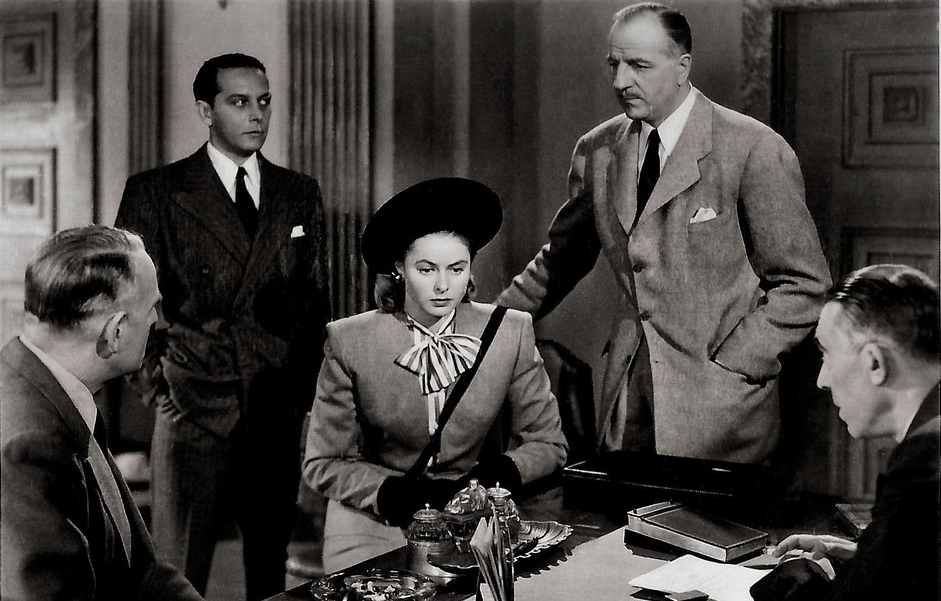
Part spy thriller, part romantic detonation, Notorious is a movie to experience and savour. From a terrific screenplay by Ben Hecht, Alfred Hitchcock delivers one of the most remarkable screen-pairings – nay, screen tryptich’s in decades, as Claude Rains provides an equally commendable plaudit for his turn as third-wheel Alexander Sebastian opposite Cary Grant and Ingrid Bergman. The film is entirely Bergman’s, however, shouldering the film’s entire emotional weight, and as Alicia boy does she absolutely deliver. Her father is a Nazi sympathiser, she’s got the hots for Carey Grant’s US agent character (it’s not established but I have to assume it’s CIA, or a close adjunct agency), and she’s thrown against her will into a faked relationship with a former beau in order to obtain secret information; that’s a lot for a self-described promiscuous, heavy-drinking party girl, a girl whose reputation is largely in the gutter. Morality aside, the luminous Bergman soaks up Hitchcock’s continual closeups and superb framing selections as he places her in the middle of this tempestuous narrative, around which so much international intrigue swirls.
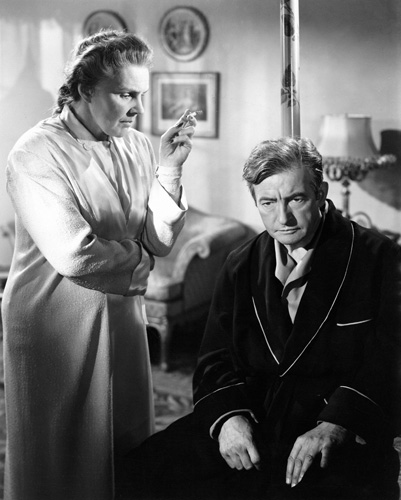
Bergman’s radiant beauty lights up the screen whenever she’s front-and-center, and Hitch (bless the stodgy old perv) puts her front-and-center almost all the time, so this is pleasing for all who come to the movie. Cary Grant ain’t a bad looking dude either, and despite his character feeling a little too taciturn to really be invested in Alicia’s fate their attraction is palpable from moment one. To be honest, the sidebar story of Nazis in Brazil might as well not exist here, because whenever Grant and Bergman share the screen for their romantic interludes and development, the sexual tension could be cut with a knife. Their intimate scenes – notably, the pair engaged in a three-minute pash that was edited around the Hayes Code’s two-minute maximum and gee whizz it’s a sizzler – are pants-stretching sexy, husky-breathed dialogue against soft-focused lensing by DP Ted Tetzlaff maximising the chemistry the actors had on set and amplifying it tremendously. The film is worth the price of admission for these moments alone. The rest of it is just Hitchcock cream.
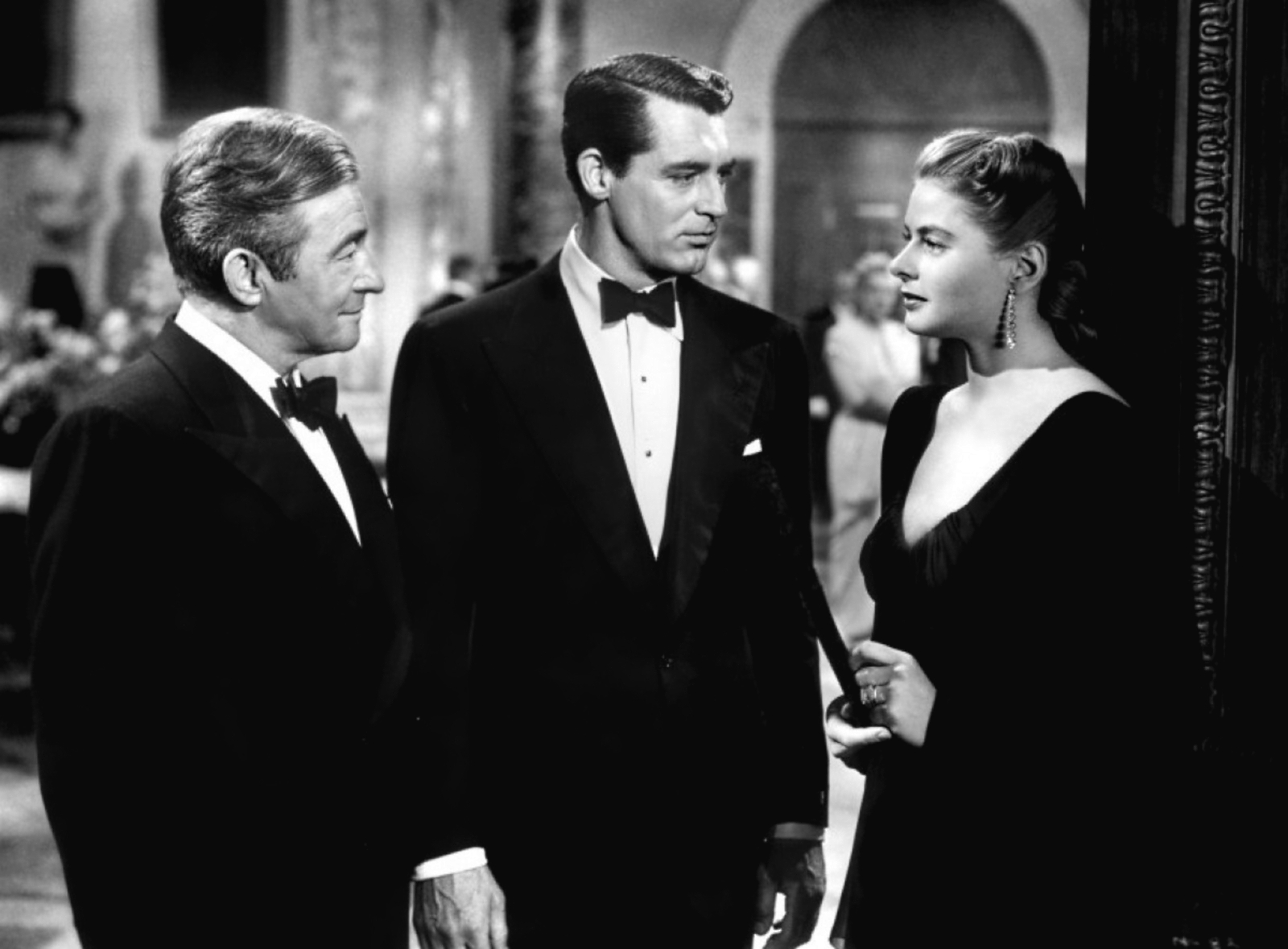
That cream focuses on Claude Rains’ unfortunate Nazi villain Alexander Sebastien, although the film wisely never plays directly with any of the Nazi iconography one might expect. Allusions and sly dialogue indicates the Nazi scourge without being overt, and this allows Hitchcock to develop Sebastian as a terrific third lead character, almost on par with Grant and Bergman in terms of audience empathy. He’s a man with convictions of his own and Notorious never flirts with undercutting him using Roman salutes or “Sieg heils” to make him a true capital-V villain, just a dude with a boner for Bergman’s much younger hotness. He’s relatable, in other words, despite his associations with the worst people humanity has to offer. Rains is excellent in the role, breathing skilful life into a character that could have been played so simply and cliched, but isn’t. By the film’s midpoint you get the sense that he’s legitimately in love with Alicia and would make her terribly happy, if only he wasn’t a Nazi scumbag. Rains’ turn as Sebastian is augmented by a roster of equally solid supporting actors, all of whom really shine in even the minimal roles – butlers, other agents, Nazi associates, heck even Sebastian’s elderly mother, as played by Leopoldine Konstantin, is a rapacious type that elevates the material exponentially.
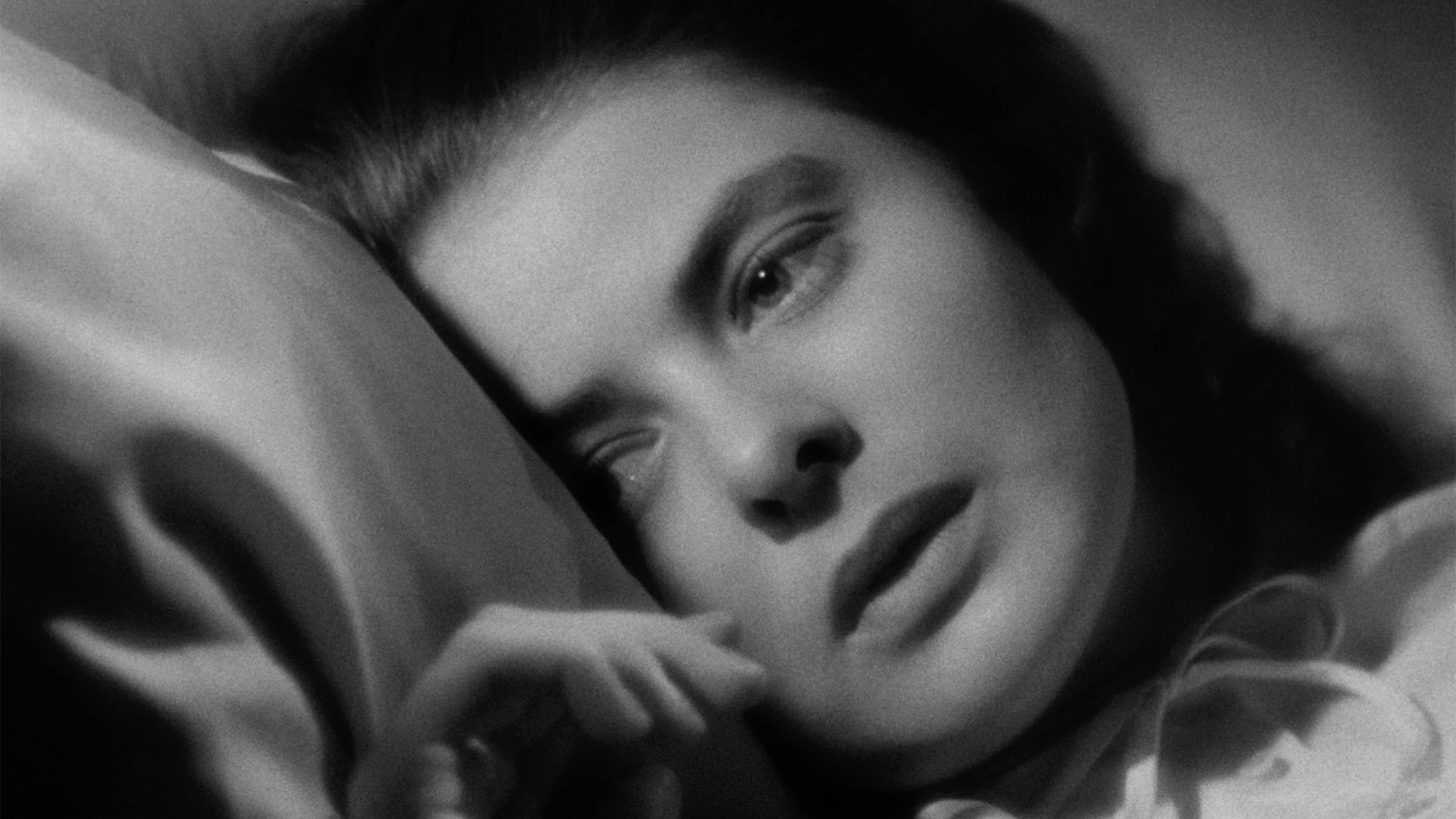
As always, Hitchcock’s command of the film medium is exemplary. Understanding what makes a good thriller work, Hitchcock builds dramatic tension even when he has two characters falling in love, as the omnipresent and overriding “we must complete a mission” plot conceit looms large in every corner of the frame. On a technical level, one could argue Hitch was ahead of the curve in every respect when it came to this kind of genre storytelling, from camera placement and framing, to lighting, editing and sound design; Notorious is the perfect distillation of all the skills Hitchcock had honed and, given a tremendous cast, delivers to the viewer one hell of an engaging story. A lot of Notorious is filmed utilising rear-projection to expand sets or locations our characters inhabit – almost all of Notorious is shot on a soundstage, as was Hitchcock’s wont – but even to this day it’s perhaps the least distracting “classic rear projection” I’ve seen, and after a while you just don’t even notice. The story and characters are engaging right from the outset and by the time you get into the rear-projection heavy Rio de Janiro locations you’ve forgotten all about it. There’s a famous dolly zoom pull from the top of a massive staircase down to Bergman’s hand clutching a key, perhaps one of the all-time great noir moments to build tension for the viewer, and it’s so masterfully achieved by the focus puller and camera operator you almost don’t even realise what’s happening, it’s so slick. It’s the kind of shot Martin Scorsese likes to wax lyrical about on his film documentaries. Heck, most of the shots in this film could be dissected for a semester at film school. In short, Notorious is tremendously technical, and supremely handled by a master director working at the top of his game.
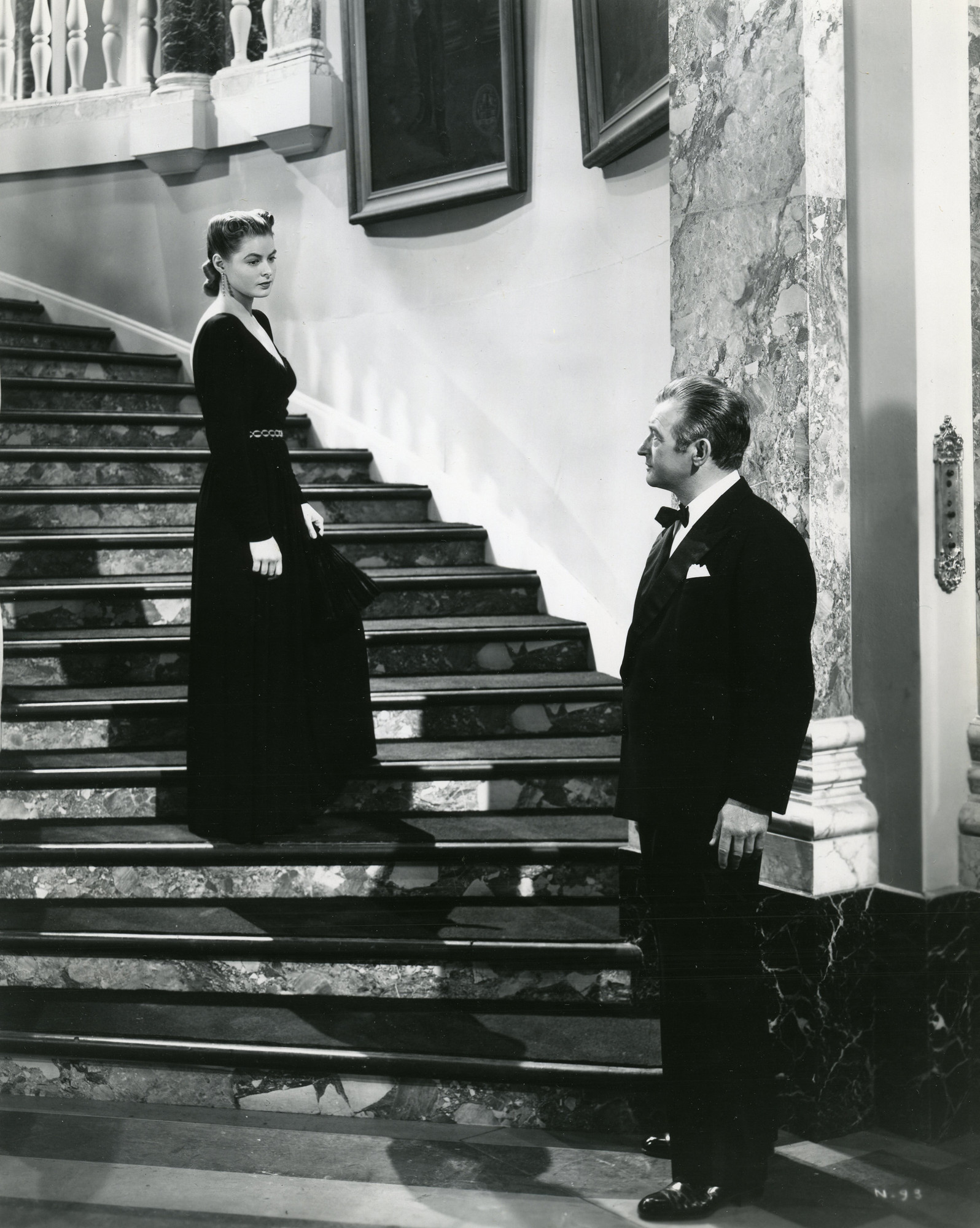
I loved Notorious. It’s a masterpiece of the genre, and arguably Hitchcock’s strongest dramatic work that isn’t a horror movie. Boasting stellar chemistry between Cary Grant and Ingrid Bergman, an empathetic villain and engaging plot device, and Hitchcock’s assured direction behind the camera, Notorious is vintage Hollywood that absolutely fires on all cylinders. Whether you’re a Hitch fan or not, you’d be mad not to check this one out, if you haven’t already. Delightfully made, Notorious is superb.

